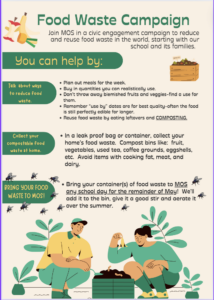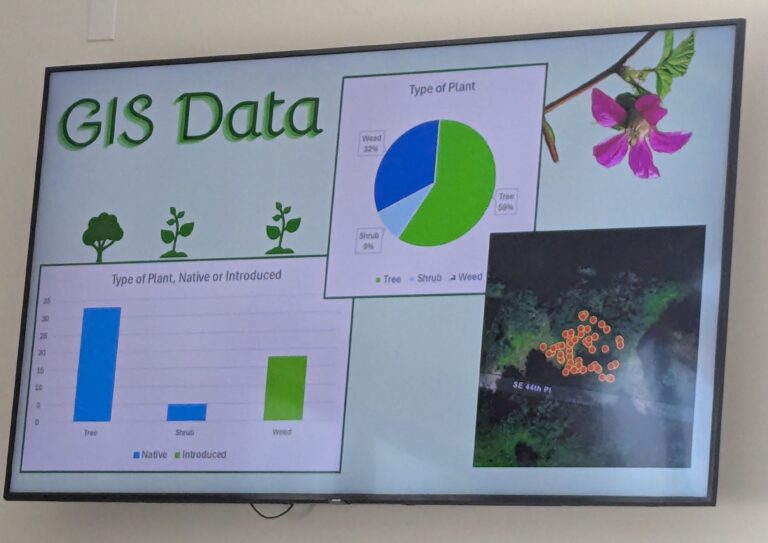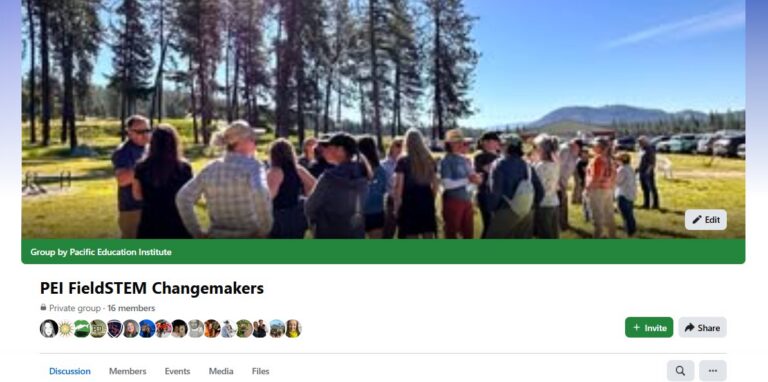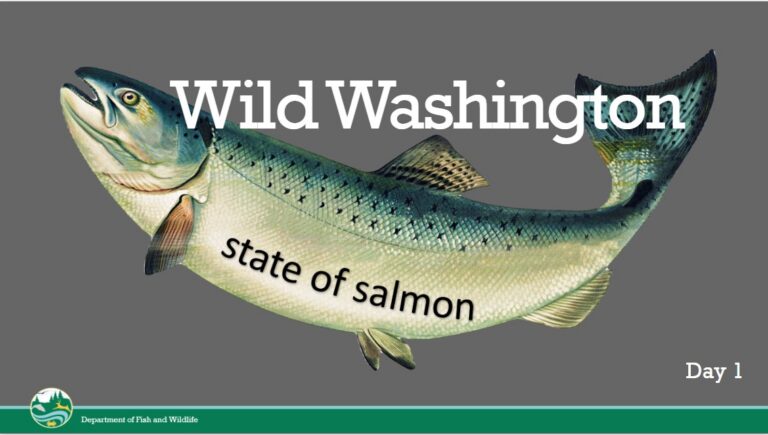Mead Outdoor School students experimented with different materials to filter food waste water.
This spring, a team of engineers gathered to tackle an urgent environmental challenge: how to keep food waste out of the water that eventually ends up in our soil. They created prototypes using materials like plastic and fabric to filter out harmful substances, experimented with charcoal, and shared their recommendations with the public.
Their ages ranged from 5 to 7.
As you may have gathered, these were no ordinary engineers. Yet for students at Mead Outdoor School (MOS), a branch of Mead Learning Options in Spokane, the experience was not unusual. Experimentation and application are essential aspects of the school’s approach to education.
“MOS focuses on project and place-based learning,” explains teacher Katie Semko. “The kids know that whatever they’re learning about, they’re going to do experiments and have an inquiry process and they’ll end up making something that’s going to solve a problem in the real world. They jump right in because they know they’re working on real problems. They’re phenomenal engineers.”
“The kids know that whatever they’re learning about, they’re going to do experiments and have an inquiry process and they’ll end up making something that’s going to solve a problem in the real world. They jump right in because they know they’re working on real problems. They’re phenomenal engineers.”
— Mead Outdoor School teacher Katie Semko
Semko was one of 45 Washington educators who completed part or all of a statewide FieldSTEM and Civic Engagement workshop through PEI. During the course, teachers listened to students of varying ages who have led civic engagement projects within their communities and teachers who had guided students through the process. After the statewide portion, participants completed an asynchronous task and broke into regional groups where they chose to implement one of PEI’s climate science storylines. The MOS group chose to implement the storyline focused on food waste.

Hearing directly from people with experience made a difference says PEI’s Lower Columbia FieldSTEM Coordinator Emily Newman. “Student presenters are always a big hit with teachers because it opens up the different directions these projects can go,” Newman explains. “Many of the students had also presented their projects during the Student Summit and one group from Quinault had also shared their project with legislators.” PEI’s annual student summit attracts student groups from throughout Washington State to share their climate science projects with leaders of state agencies and legislators from their districts.
Climate change is also the focus of PEI’s food waste storyline, which made it a good fit with MOS’ mission and values, according to Semko. “MOS staff are invested in thinking about how to reduce and reuse, and we live in a community that has a lot of farms and people in high need,” she explains. “We want to start growing our own food. We are using funds collected during a PTO MOS fundraising event to purchase high-tunnels that will not only help us grow food but will double as additional classrooms. Eventually, our goal is to get out into the community and start providing produce to people in need.”
They’re off to a good start. Toward the end of the 2023-24 school year, MOS teachers and students shared information about reusing and reducing food waste with families and asked them to help fill the school compost bins. In the meantime, Semko collaborated with MOS K-2 teacher Liz Williamson to guide students through PEI’s food waste storyline.

Students were surprised to learn what happens to food waste after it goes to the landfill, Semko says. “We did an experiment, and they were in shock about how much seeps through to the soil. When something goes to the dump, that doesn’t mean it’s clean. One of the things that they’ve mentioned repeatedly is how we think something is gone but how much it still affects the ecosystem.”
During the 2024/25 school year the MOS team plans to use funding from an OSPI Outdoor Learning Grant to purchase compost bins. They are already in conversations with middle and high school science teachers about ways to integrate the food waste storyline across grade levels.
At the 3 -5 grade level, science teacher Opal Harbert plans to incorporate the food waste storyline within her units. Middle school teachers Erin Glasser and Kirsten Erickson are also planning ways to incorporate food waste and civic engagement into the upcoming school year and Glasser will be teaching a high school environmental science class during the 2024-25 school year. High School Leadership teacher Tracy Taitch teaches will be incorporating the food waste storyline into some of the students’ leadership opportunities.
“We hope to incorporate older students into either sharing knowledge or creating projects for themselves,” says Semko. “We want to brainstorm with students about how we can develop all the pieces of the storyline. We’re really looking forward to next year.”




